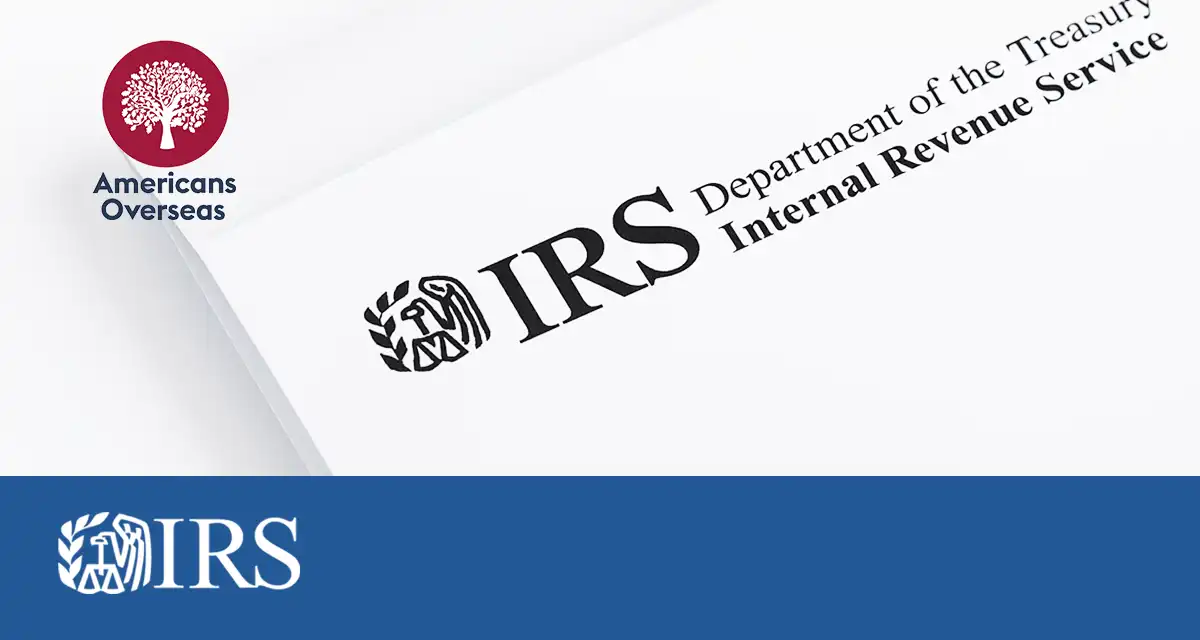Tips US tax return
1. Americans Overseas receive an automatic filing extension until June 15th and can apply for further extension to October 15th
U.S. taxpayers living outside the US receive an automatic filing extension until June 15th to file as opposed to April 15th for U.S. citizens living in the U.S., and a further extension can be applied for until October 15th.
The FBAR deadline has an automatic extension for all US Persons until October 15th (no further extensions possible).
2. Reduce or eliminate U.S. taxes with the Foreign Earned Income Exclusion
In 2023, you may be able to exclude up to $120,000 of foreign-earned income from U.S. taxation with the Foreign Earned Income Exclusion (FEIE)! This is the most common way to reduce or eliminate your U.S. tax liability. You might also be able to exclude certain housing expenses, such as rent and utilities, using the Foreign Housing Exclusion.
If you live in a high-tax country or your income exceeds the Foreign Earned Income Exclusion (FEIE), the Foreign Tax Credit (FTC) may help you offset or eliminate your US tax liability. The FTC is a dollar-for-dollar credit on the taxes you pay to a foreign country.
3. Including non-US children on your U.S. tax return has long-term implications
Children born to a non-U.S. parent overseas can be reported on your Tax Return as a dependent. While the Child Tax Credit(s) you’ll receive can be financially advantageous, remember that they are now considered U.S. persons and will forever have a U.S. tax obligation unless they choose to renounce their citizenship once they are an adult. They will also need a Social Security Number to file.
4. Government benefits may be taxable in the U.S.
Most benefits are taxed but there are exceptions. Examples of benefits can be Child support, welfare, and government pension. Always report them to your tax preparer so they can check whether or not it’s taxable.
5. Rental income must be reported on your US tax return
You must report all rental income (foreign and domestic) to the IRS, but many expenses related to the property can be offset against this income reducing your potential tax liability. The U.S. also allows depreciation as a write-off (taking over a life term of 40 years). This means you can deduct an amount every year from your rental income. However, when you sell the property the U.S. will tax you over any gain. Make sure to be well-informed on all specifics. Local and US tax laws on real estate often differ.
6. Applying Tax Treaties
The United States has income tax treaties with a number of foreign countries. These Treaty provisions generally are reciprocal (apply to both treaty countries). Therefore, a U.S. citizen or resident who receives income from a treaty country and who is subject to taxes imposed by foreign countries may be entitled to certain credits, deductions, exemptions, and reductions in the rate of taxes of those foreign countries. Therefore, please check the applicable Treaty between the U.S. and your country of residence to avoid paying double tax!
7. Affordable Care Act (“ObamaCare”)
U.S. citizens living abroad are subject to the individual shared responsibility provision. However, U.S. citizens who are not physically present in the United States for at least 330 full days within a 12-month period are treated as having minimum essential coverage for those 12 months regardless of whether they enroll in any health care coverage.
In addition, U.S. citizens who are bona fide residents of a foreign country (or countries) for an entire taxable year are treated as having minimum essential coverage for that year. In general, these individuals qualify for the foreign-earned income exclusion.
Individuals who qualify for this rule need to take no further action to comply with the individual shared responsibility provision during the months when they qualify. They will report their status with their federal income tax return on Form 8965.
8. Converting amounts to dollars
If you have elected to report in dollars, you (or your preparer) need to convert your amounts on your return and FBAR. You can find the official year average exchange rates for income tax purposes here, The end-of-year exchange rates used for the FBAR can be found here.
Disclaimer: The advice offered in this article is intended for informational purposes only. Use of this column is not intended to replace or substitute for professional advice. No action should be taken based on this information without seeking proper professional advice. This website. company, publisher, and its author are not responsible nor liable for the outcome or results of following any of the above advice and/or links to advice in any given situation.
Need more information?
We, the founders of Americans Overseas, were born in the Netherlands and obtained our American nationality through our (American) mother.
When we heard about the US tax system for the first time around 2013, we were in total disbelief (it can’t be true!), anger (how can they do this?), fear (am I going to get fined or pick up other problems?), and panic (what should I do?). It is (unfortunately) true that there is an additional American tax levy. But there’s no information from the local government, and when approached, the consulate referred us to the IRS, and the IRS was impenetrable.
That’s why we started this initiative to help people from all over the world by providing proper information about the US tax system to avoid unnecessary panic and offering help free of obligation and free of charge. If needed, we have a network of affordable professionals (accountants) who can help you with your tax obligations.
Contact us for more information







